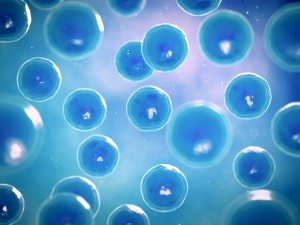-

New Tool Aids Stem Cell Engineering for Medical Research
ROCHESTER, Minn. — A Mayo Clinic researcher and his collaborators have developed an online analytic tool that will speed up and enhance the process of re-engineering cells for biomedical investigation. CellNet is a free-use Internet platform that uses network biology methods to aid stem cell engineering. Details of CellNet and its application to stem cell engineering are described in two back-to-back papers in the journal Cell.
“This free platform has a broad range of uses for all types of cell-based investigations and can potentially offer help to people working on all types of cancer,” says Hu Li, Ph.D., investigator in the Mayo Clinic Center for Individualized Medicine and Department of Molecular Pharmacology & Experimental Therapeutics, and co-lead investigator in the  two works. “CellNet will indicate how closely an engineered cell resembles the real counterpart and even suggests ways to adjust the engineering.”
two works. “CellNet will indicate how closely an engineered cell resembles the real counterpart and even suggests ways to adjust the engineering.”
The network biology platform contains data on a wide range of cells and details on what is known about those cell types. Researchers say the platform can be applied to almost any study and allows users to refine the engineering process. In the long term, it should provide a reliable short cut to the early phases of drug development, individualized cancer therapies, and pharmacogenomics.
CellNet uses 21 cell types and tissues and data from 56 published human and mouse engineering studies as a basis for analyzing and predicting cell fate and corresponding engineering strategies. The platform also offers classification scores to determine differentiation and conversion of induced pluripotent stem cells. It reveals incomplete conversion of engineered microphages and hepatocytes. CellNet can be used for interrogation of cell fate following expression profiling, by classifying input by cell type, quantifying gene regulatory network status, and identifying aberrant regulators affecting the engineering process. All this is valuable in predicting success of engraftment of cancer tumors in mouse avatars for cancer and drug development research. CellNet can be accessed at cellnet.hms.harvard.edu.
Co-lead authors with Dr. Li are Patrick Cahan, Ph.D., and Samantha Morris, Ph.D., of Boston Children's Hospital. The senior investigators are George Q. Daley, M.D., Ph.D., Director of the Stem Cell Transplantation Program at Boston Children's and senior investigator on both studies and James Collins, Ph.D., Core Faculty member at the Wyss Institute and the William F. Warren Distinguished Professor at Boston University, co-senior investigator on one of the studies.
Investigators are supported in part by the National Institutes of Health, specifically, the National Institute of Diabetes and Digestive and Kidney Diseases and the National Heart, Lung, and Blood Institute; the Children's Hospital Stem Cell Program; the Howard Hughes Medical Institute; Alex's Lemonade Stand Foundation; the Ellison Medical Foundation; the Doris Duke Medical Foundation; the Mayo Clinic Center for Individualized Medicine and the Mayo Clinic Center for Regenerative Medicine.
###
About Mayo Clinic
Mayo Clinic is a nonprofit organization committed to medical research and education, and providing expert, whole-person care to everyone who needs healing. For more information, visit http://www.mayoclinic.org/about-mayo-clinic or https://newsnetwork.mayoclinic.org/.
MEDIA CONTACT:
Robert Nellis, Mayo Clinic Public Affairs, 507-284-5005, newsbureau@mayo.edu
Related Articles







